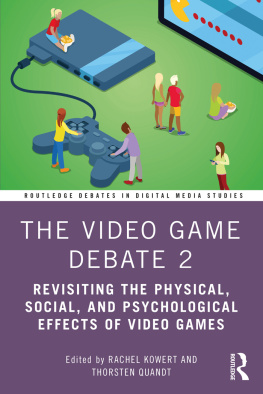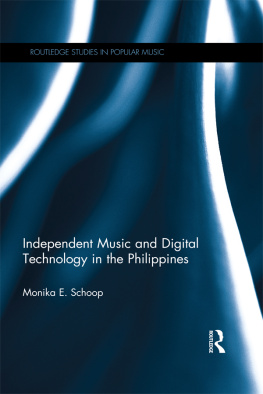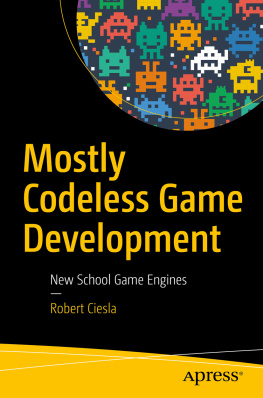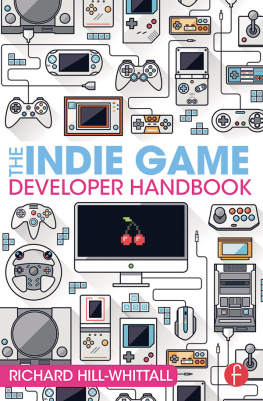Independent Videogames
Independent Videogames investigates the social and cultural implications of contemporary forms of independent videogame development. Through a series of case studies and theoretical investigations, it evaluates the significance of such a multi-faceted phenomenon within videogame and digital cultures.
A diverse team of scholars highlights the specificities of independence within the industry and the culture of digital gaming through case studies and theoretical questions. The chapters focus on labor, gender, distribution models and technologies of production to map the current state of research on independent game development. The authors also identify how the boundaries of independence are becoming opaque in the contemporary game industry often at the cost of the claims of autonomy, freedom, and emancipation that underlie the indie scene. The book ultimately imagines new and better narratives for a less exploitative and more inclusive videogame industry.
Systematically mapping the current directions of a phenomenon that is becoming increasingly difficult to define and limit, this book will be a crucial resource for scholars and students of game studies, media history, media industries and independent gaming.
Dr. Paolo Ruffino is a Lecturer in Communication and Media at the University of Liverpool. He is the author of Future Gaming: Creative Interventions in Video Game Culture (Goldsmiths and MIT Press, 2018). He has co-curated, with Marco Benot Carbone, a special issue of Games and Culture in 2017 on the work of Roger Caillois, and of GAME The Italian Journal of Game Studies on videogame subcultures in 2014. His research focuses on independent videogame development, the automation of play, and contemporary practices and technologies of gamification and quantification of the self. He is chair of DiGRA Italia and a member of British DiGRA.
Routledge Advances in Game Studies
Identity and Play in Interactive Digital Media
Ergodic Ontogeny
Sara M. Cole
Videogames, Identity and Digital Subjectivity
Rob Gallagher
Evolutionary Psychology and Digital Games
Digital Hunter-Gatherers
Edited by Johannes Breuer, Daniel Pietschmann, Benny Liebold, and Benjamin P. Lange
The Playful Undead and Video Games
Critical Analyses of Zombies and Gameplay
Edited by Stephen J. Webley and Peter Zackariasson
Hybrid spaces
Crossing Boundaries in Game Design, Players Identities and Play Spaces
Edited by Adriana de Souza e Silva and Ragan Glover-Rijkse
Forms and Functions of Endings in Narrative Digital Games
Michelle Herte
Independent Videogames
Cultures, Networks, Techniques and Politics
Edited by Paolo Ruffino
For more information about this series, please visit: https://www.routledge.com
Independent Videogames
Cultures, Networks, Techniques and Politics
Edited by
Paolo Ruffino
First published 2021
by Routledge
2 Park Square, Milton Park, Abingdon, Oxon OX14 4RN
and by Routledge
52 Vanderbilt Avenue, New York, NY 10017
Routledge is an imprint of the Taylor & Francis Group, an informa business
2021 selection and editorial matter, Paolo Ruffino; individual chapters, the contributors
The right of Paolo Ruffino to be identified as the author of the editorial material, and of the authors for their individual chapters, has been asserted in accordance with sections 77 and 78 of the Copyright, Designs and Patents Act 1988.
All rights reserved. No part of this book may be reprinted or reproduced or utilised in any form or by any electronic, mechanical, or other means, now known or hereafter invented, including photocopying and recording, or in any information storage or retrieval system, without permission in writing from the publishers.
Trademark notice: Product or corporate names may be trademarks or registered trademarks, and are used only for identification and explanation without intent to infringe.
British Library Cataloguing-in-Publication Data
A catalogue record for this book is available from the British Library
Library of Congress Cataloging-in-Publication Data
A catalog record has been requested for this book
ISBN: 9780367336202 (hbk)
ISBN: 9780367336219 (ebk)
Typeset in Sabon
by codeMantra
Contents
PAOLO RUFFINO
PART I
Cultures
APHRA KERR
BONNIE RUBERG
PAWE GRABARCZYK
PART II
Networks
PIERSON BROWNE AND JENNIFER R. WHITSON
CELIA PEARCE
PART III
Techniques
PATRICK CROGAN
FELAN PARKER
CASEY ODONNELL
PART IV
Politics
JAMIE WOODCOCK
NADAV LIPKIN
PART V
Local indie game studies
ORLANDO GUEVARA-VILLALOBOS
BRENDAN KEOGH
OLLI SOTAMAA
JOHN VANDERHOEF
ALISON HARVEY
BART SIMON
Pierson Browne is a PhD Candidate in the Department of Sociology and Legal Studies at the University of Waterloo. He currently serves as a Research Assistant for both the Indie Interfaces Project (www.indieinterfaces.com) and Netlab. Piersons research interests include game studies, independent game development, social network analysis, and game theory. His dissertation research focuses on the diffusion of strategic knowledge through networks of play.
Patrick Crogan teaches media at the University of the West of England, Bristol where he is Associate Professor of Digital Cultures. He works on videogames, automation, AI and drones, and animation among other things. He is the author of Gameplay Mode: War, Simulation and Technoculture (University of Minnesota Press, 2011) and has an essay in the Ludic Economies special issue of Games and Culture (2018).
Pawe Grabarczyk is currently an Associate Professor at IT University, Copenhagen. His background is analytic philosophy (specifically philosophy of language and mind). His research interests revolve around the interrelations between philosophy and game studies. He is mostly interested in the study of game ontologies, independent game development, Virtual Reality games, the role of randomness in games (for example, the popular loot boxes controversy), and demoscene. He published in Game Studies, ToDiGRA, Avant, and New Ideas in Psychology. He is an Editor-in-Chief of Replay: Polish Journal of Game Studies.
Orlando Guevara-Villalobos is an Associate Lecturer in Sociology at the University of Costa Rica. His research interests deal with the sociotechnical arrangements underpinning cultural industries, science, technology, and innovation. His publications have focused on the formation of entrepreneurial and professional cultures of digital production in the United Kingdom, as well as their contestations and negotiations with the corporate gatekeepers of digital distribution markets.




![Mark J. P. Wolf (editor) - Encyclopedia of Video Games: The Culture, Technology, and Art of Gaming [3 volumes]](/uploads/posts/book/279290/thumbs/mark-j-p-wolf-editor-encyclopedia-of-video.jpg)

![Chris Bateman [Chris Bateman] - Beyond Game Design: Nine Steps Toward Creating Better Videogames](/uploads/posts/book/119409/thumbs/chris-bateman-chris-bateman-beyond-game-design.jpg)



